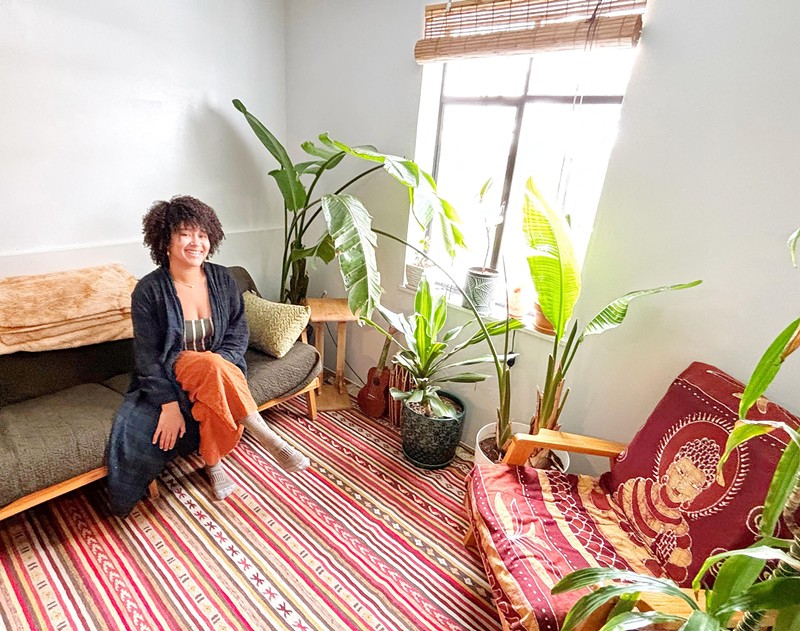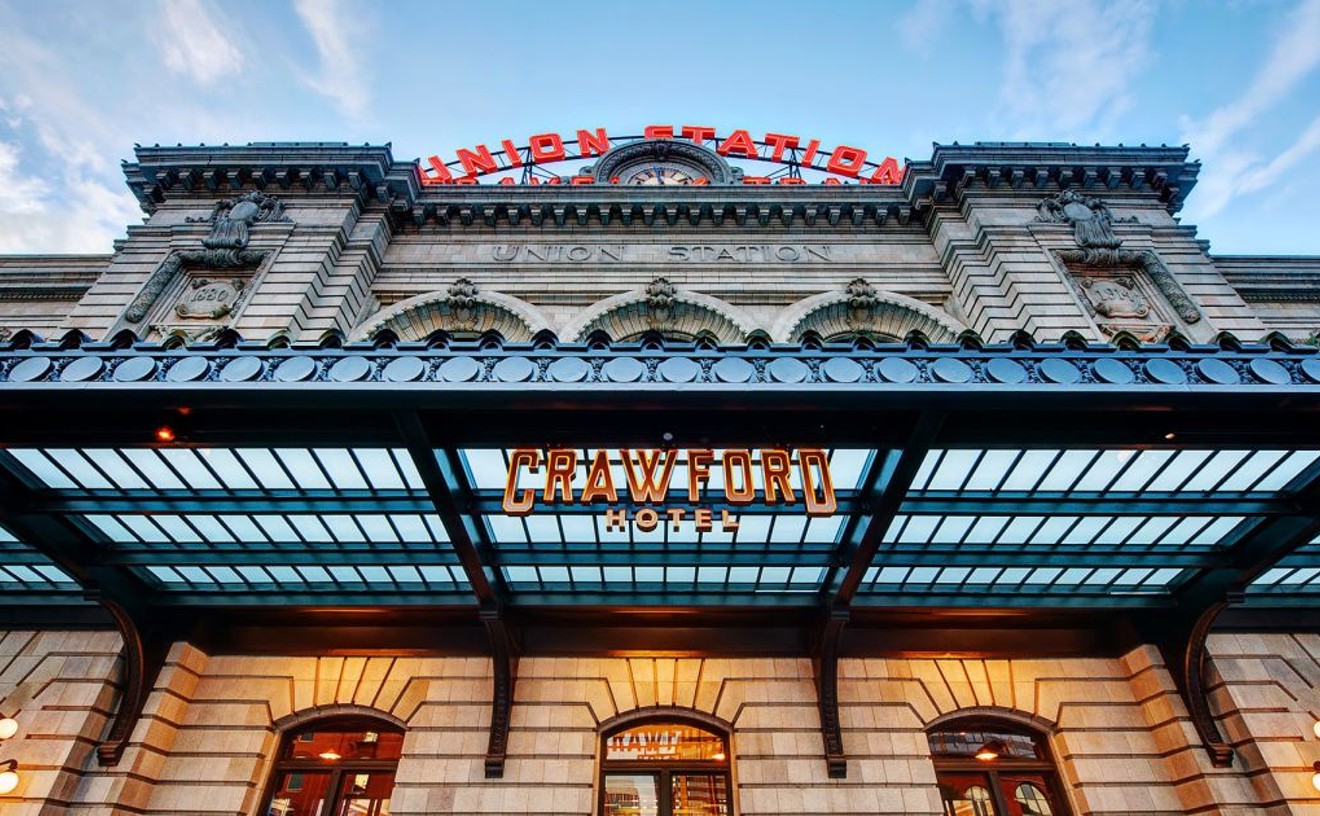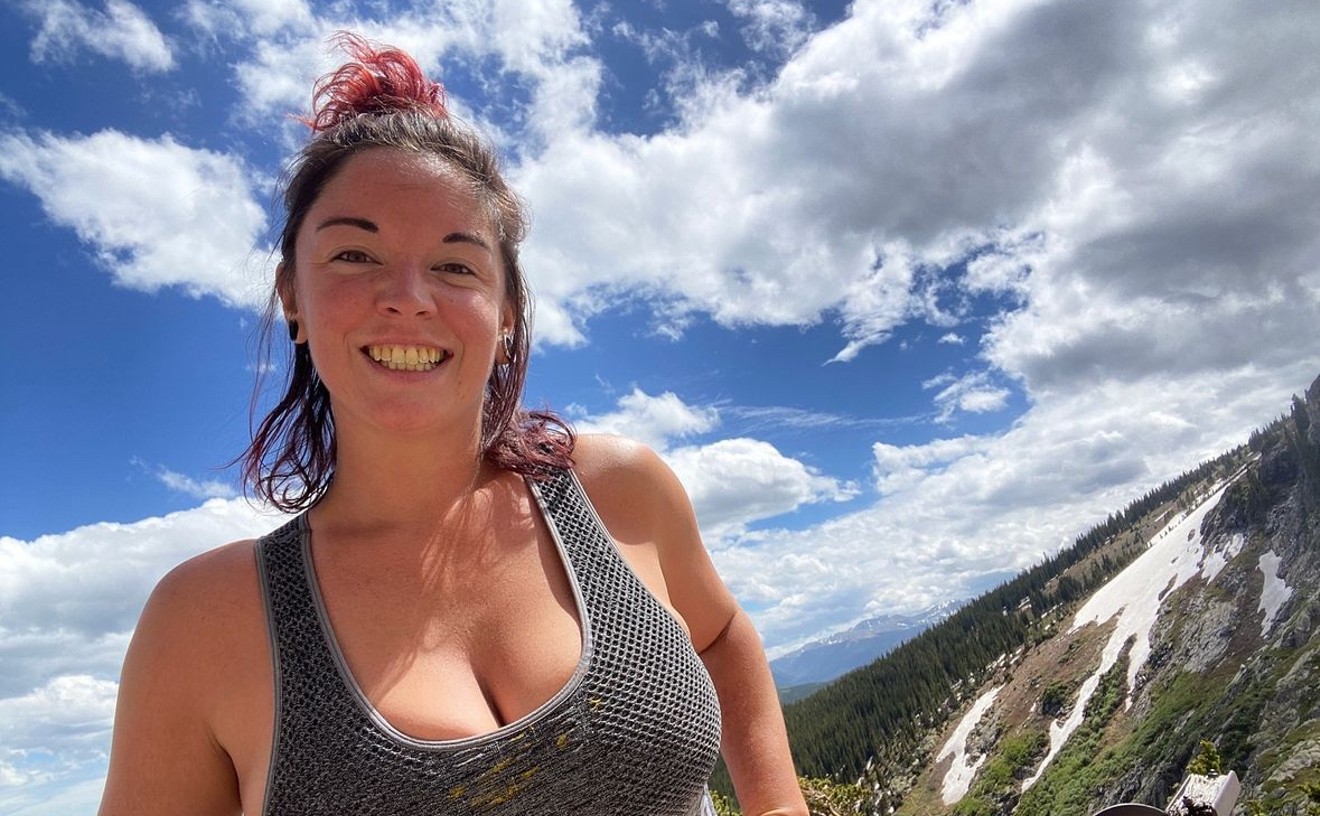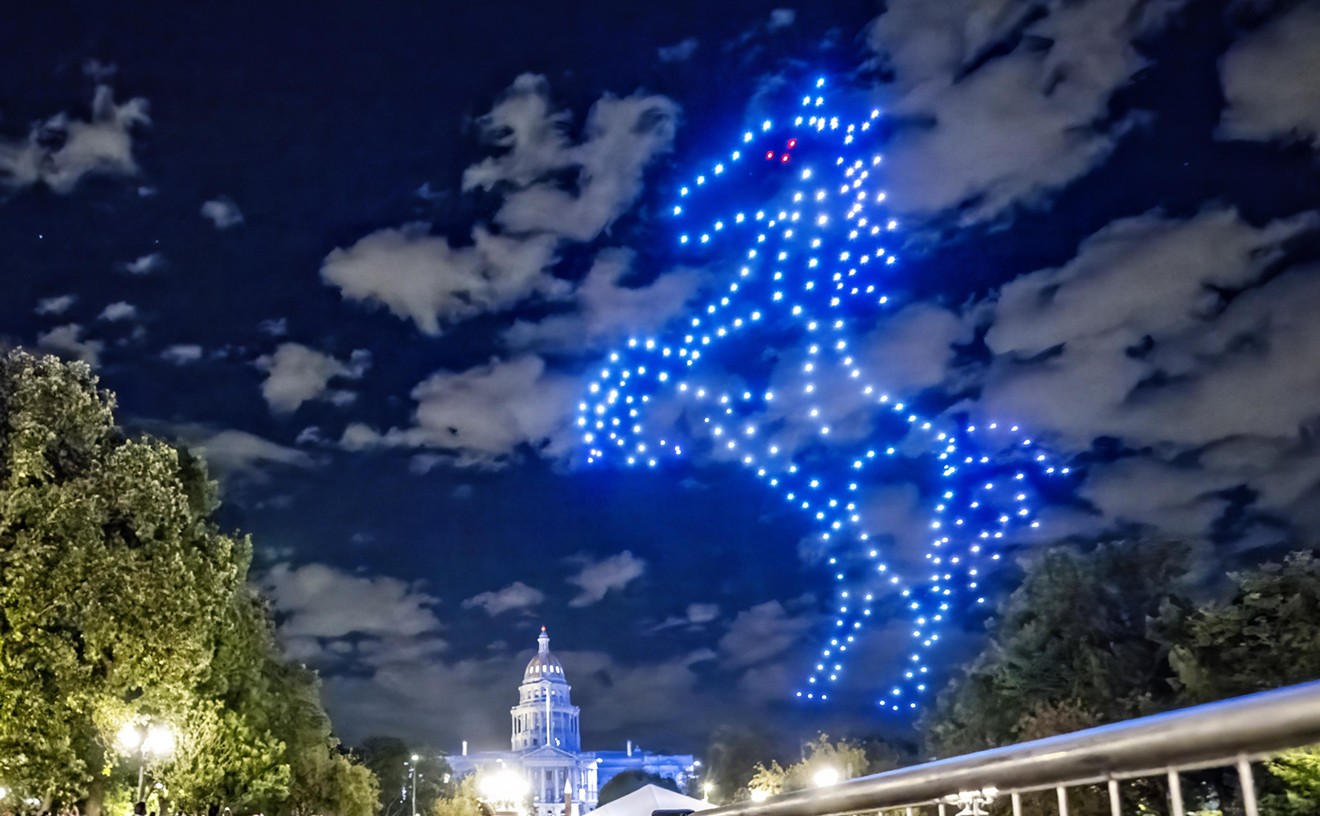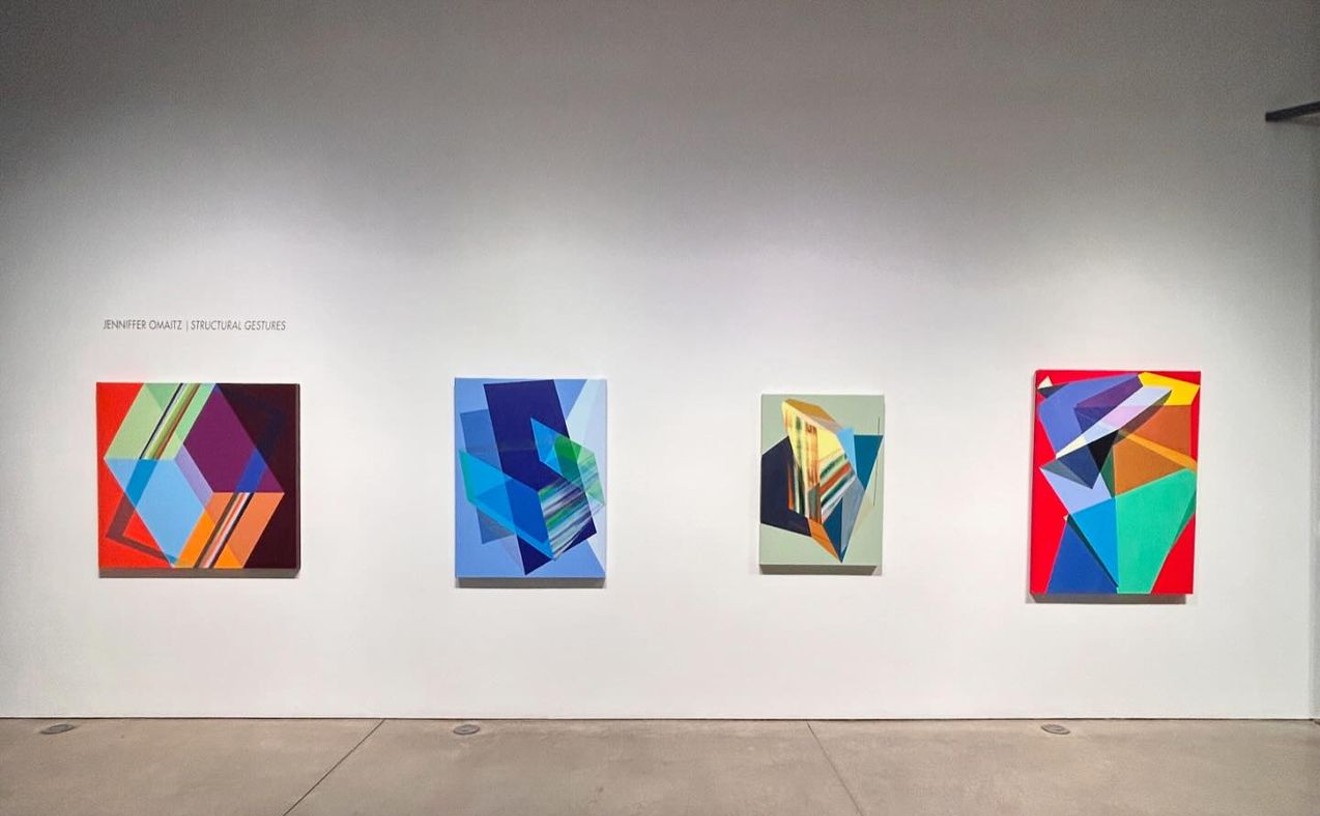We discovered a very special place that is opening in Wheat Ridge: Permatierra, which combines pet grooming, sustainability and community all in one bright, cozy spot. We sat down with founder Kēnya Stoute on a snowy day as she prepared the space for her grand opening on Saturday, February 17. Read more about the evolution of this unique small business and what it is bringing to the community below.
Westword: How did you get into grooming dogs?
Kēnya Stoute: I started my business, Doggy Downtime, in 2010 after I had my first child at seventeen. I started with pet sitting and dog walking, and I then began learning grooming from a mobile groomer where I was in Fairfield, Connecticut. It allowed me to juggle single-parenting hours and make money without a college degree. I started by learning the basics working with her, and having been an artist, I found it easy to pick up. I have always had a sense of animal body language, something I was really good at since I was a little kid. I was obsessed with animals and read about them all the time. I had a really good knowledge of dogs and canine behavior and breeds. Grooming came very intuitively to me. I started to have my own grooming clients from my pet sitting and dog walking, and did it out of my mom's garage, so I had money for things for my kid.
Tell us about what Permatierra is.
Originally I dreamed up the name with my best friend Sarah Gilstrap when we formed Potted Peace Project, where we collected plants and gifted them to people of color for free. We started that on Earth Day 2020, and originally Permatierra was going to be a plant-care service. We quickly realized that the response from Potted Peace Project was something that was really needed. People were so filled with joy by getting the plants, so Permatierra began to change its purpose. I had worked on a project that provided space for marginalized communities to hold events around climate care and community resilience. Realizing there was this big need for space and reconnection to nature, I decided to merge my dog grooming business — which kept me afloat my entire life financially and emotionally (dogs have been really healing for me) — with the plant work and providing space for the community in order to create what it is now.
Permatierra is a community boutique, centering people of color. Local artists of color can sell their things here. I have the dog grooming room separated from the retail space, and then we have a community gathering space. It is eco-friendly dog grooming, where I conserve water, use biodegradable products and even compost the dog hair! I partner with a local composting company that picks up the hair, and they put it back into the soil. Animals being a part of our emotional well-being fuse into other parts of our well-being, which is in community and reconnecting to nature. Potted Peace Project is here now, and in the community room, people can gather, host workshops. The whole space is where we center and celebrate people of color and our efforts to care for the land, and to remind our communities how to care for land through an Afro-Indigenous lens of land stewardship and community care. It's a very unique business.
Would you like to share the identities you hold?
As a Black, femme, single teen mom, I want that really shown with my business. What I see a lot in Black and brown communities is we don’t know that we can do it until we see someone from our community doing it. Having that representation is super important. There are very few groomers of color, and they might be in the Big Box groomers, but even fewer own their own grooming space.
What are the most common questions people ask when they reach out?
Honestly, they ask how soon they can get their dog in. Because there is such a shortage of groomers and so many dogs, people are desperate. I've heard there are more dogs than kids in the Denver metro. People who are a bit more particular about their pets might want to know if it is cage-free (which I am); a lot are also not used to the style of grooming I do, which is appointments. You come in for your appointment, leave the dog, and you have to be back as soon as their grooming is done; I give them a text for pickup, but I am very particular about their drop-off and pick-up times, especially for sensitive dogs. And they're usually really happy to hear that, because in other places, they have to leave their dogs all day, and the dogs are in kennels.
I specialize in puppies and get them set up for lifelong grooming. As soon as they need a grooming — around three months old — they come in and start with puppy bath, and I get them accustomed to the process. I do have a weight limit of 75 pounds. Grooming is preventative health care, so seeing it as that rather than a beauty thing is important. It is something you need to do for their health.
Can you describe the values of the business?
It is an impact-driven business versus a profit-driven business. As long as I can sustain my life and my kids, it's enough. Permaculture is, for me, a word that I don't like to use too much, because some of it is appropriated Indigenous culture, although there is language used in permaculture that really resonates with me: Earth care, people care, and fair share are big ones that are very much so alive in my business.
I am committed to uplifting marginalized communities; there are a bunch of things at the bottom of the website about what we won’t tolerate, like ableism, racism. Not being the owner of this building, there's only so much I can do about the building impact. For example, we have these older, single-pane windows, and I've been getting after the landlord, like, "We should really do something about getting them updated, because it's a big energy-waster." Those are some barriers about trying to do things differently.

Potted Peace Project co-founder Sarah Gilstrap and happy community members with their new plants.
Kēnya Stoute
I want people to feel like they just went over to their friend's house who they just love being around. Somewhere clean, but not sterile. And even though you’re inside, there's an element of nature and the outside, because you're surrounded by plants and art.
What is a small business achievement you’re really proud of?
My first brick-and-mortar was just dog grooming, which I opened in the beginning of February of 2020, and if we remember, that was just before lockdown. I got in there, got all set up, and then it was lockdown. ... It was so scary and devastating, but I made it through that somehow and was able to open my doors when groomers were made an essential business in the lockdown. I was smart about building up a wait list during that time, so as soon as I opened up, I was booked out for months. In that first year, I made more money than I had ever in my life, and as a teen mom, it made me feel really accomplished, and I felt like I had caught up with everyone else. And not only that, but I did it up against this major obstacle of the pandemic. I feel really proud of that.
Why should people support small businesses?
Because it’s the idea of coming back to community. For pretty much everything, what we need is here, and we are fed the idea we have to outsource so many things. There are so many people and businesses who have things to offer that we need, instead of pouring money into major corporations that don't care about what's going on locally.
Small businesses are really people feeding their families. I'm just a mom trying to make sure my kids are okay and that their life is better than mine. I wouldn’t be able to do that for them and break this generational curse of sorts if I was working at PetSmart and barely getting by. My business allows me to be the best mom I can be, and that sets my kids up to be the people they can be in the world. And I care! Small businesses are real people, whereas these big corporations are the machines of capitalism. I hope that people are learning we don’t need those machines, but we do need each other...and we need to take care of each other. People should be shopping at small businesses as much as they possibly can, and I think they can do it more than they think they can.
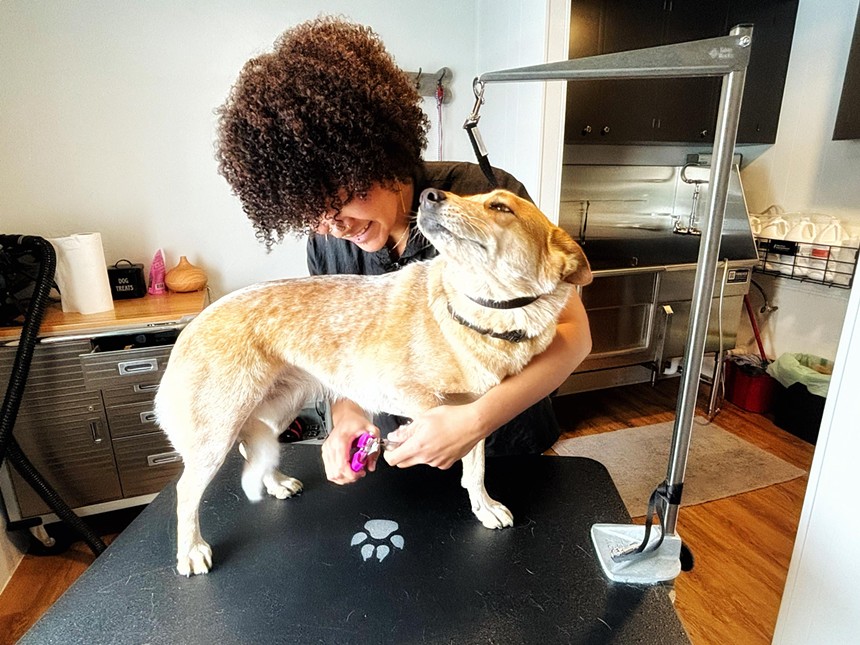
Kēnya Stoute gives her dog, Taxi, a nail trimming in the grooming room at Permatierra.
Erika Righter
My favorite class is my seed-saving 101 workshop. This is where I teach people the ancestral craft that people have done forever, and it’s the reason we have an abundance of food that nourish our bodies and a way we can share our culture and stories. Our food systems are really jacked up, and there are some scary things going on with further ownership of life, where there are laws around seeds and patents around genetic information when it comes to seeds. There's so much going on behind the scenes with our food system that they don't realize, and that can happen because we don’t have people continuing to farm. Everyone thinks you need all this land to be a farmer, and really you can do it with a backyard, growing a few heirloom tomatoes every year, saving those seeds and passing those on. It’s my favorite class to teach. It inspires people and makes them feel hopeful and makes them feel like they can truly make a difference that is also enjoyable. It’s fun! They enjoy growing their own food. It directly addresses a lot of social and climate issues.
What are some of your favorite small businesses to support in Denver?
My favorite vendors are those who might not have a physical establishment — those are the ones we overlook. We go to the store to buy a lotion or candle when there are all these local businesses that are crafting and creating all these beautiful things. I run something called the Black Market during warm seasons; it's all Black vendors who create so many things: food, jewelry, visual art, gifts — they make so much stuff. ... There are others who teach workshops and provide so many resources for the community and practice mutual aid. They keep all of their profits from the market; I enjoy supporting them, and they’ve become strong pillars of my community. People always say it’s so great to be together, and even when it’s slower, people come back because it feels so good to be in community. I also really like Whittier Cafe, Black and Blossomed, Working Class, the Mac and Cheezary, Stylus and Crate coffee shop, Lakeside Pho and the Spice Room.
When do you officially open to the public?
Our grand opening is Saturday, February 17, from 10 a.m. to 10 p.m. Check our social media to find timed events we are hosting throughout the day.
Permatierra
6494 West 44th Avenue, Wheat Ridge
permatierra.org

